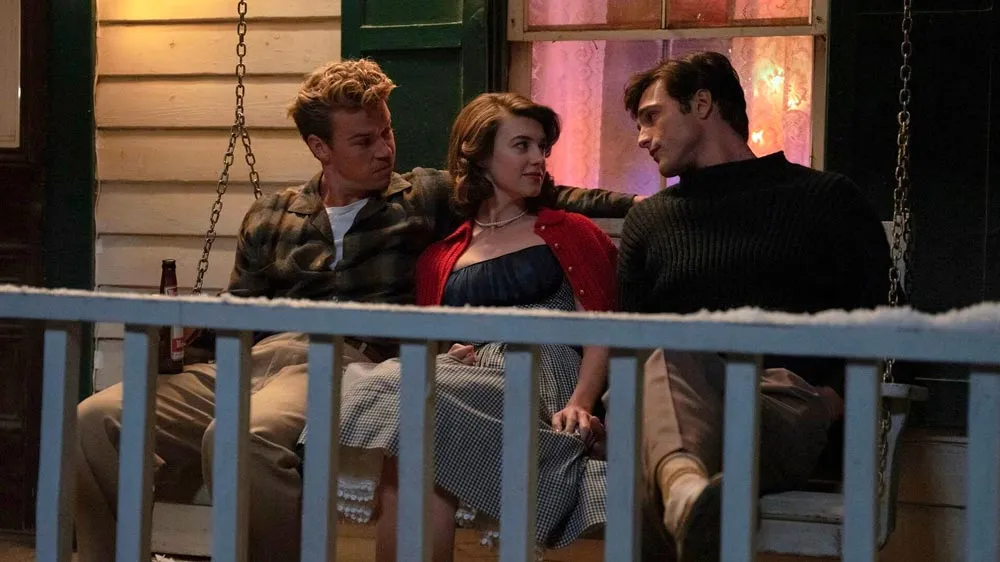August 30, 2012
Miraculous Bat Exodus at New Mexico Caverns
Mark Thompson READ TIME: 4 MIN.
CARLSBAD CAVERNS NATIONAL PARK, N.M. (AP) - There's nothing like bats to draw a crowd to the scorching Chihuahuan Desert in the late summer heat.
Several hundred people, myself and my son included, gathered a little before sunset one recent weekend outside the natural, open-mouth entrance to Carlsbad Caverns, eager to witness the nightly spectacle of bats spiraling out by the thousands and winging their way toward a buggy dinner.
With a pandemic disease killing millions of bats farther east, we wanted to see the impressive Carlsbad colony before it might be too late.
The caverns - home to perhaps 350,000 to 450,000 bats representing 16 species - were the big draw for us after having read Jules Verne's "Journey to the Center of the Earth."
Throw in a nightly bat exodus, and the decision was made. We would visit at the hottest time of year in hopes of seeing a colony swelled in numbers by new-flying pups.
White-nose syndrome, the mysterious fungal bat-killer, has biologists everywhere on guard. The disease is believed to have spread from New York state, destroying an estimated 5.5 million bats since 2006 in the eastern U.S. and Canada, as well as the Midwest. The telltale sign of affliction: white powdery fungus on the nose, ears, wings and feet.
Fortunately at least for Carlsbad Caverns, white-nose syndrome, or WNS, has yet to make it this far west. National Park Service biologist Renee West said there's reason to believe Carlsbad may luck out since its bats tend not to hibernate in winter. (The disease appears to target hibernating bats.)
When you consider a single bat can eat up to 1,000 bugs an hour - think yummy mosquitoes - the consequences are shocking. Besides a mosquito onslaught, farmers stand to lose billions of dollars from insect-ravaged crops.
No wonder then that the park service has set up a shoe-sanitizing depot outside Carlsbad Caverns for anyone who might have visited a WNS-infested cave. My son and I had visited hard-hit Laurel Caverns in southwestern Pennsylvania the previous month, and we wore different shoes just in case.
As they do every evening from May to mid-October, the crowds began gathering an hour before sundown at the stone amphitheater next to Carlsbad Caverns' gaping mouth.
Glenn Reynolds, the National Park Service ranger serving as master of ceremonies for that evening's bat flight program, urged the crowd to snap one last picture before turning off all cameras, cell phones and other electronic devices. The gadget blackout, he explained, was to protect the bats.
Dozens of tourists took his advice, posing for one last round of pictures with the deep, black hole as a backdrop, as swallows swooped overhead before settling into their nests in the natural walls.
"The day shift is about to end," Reynolds noted.
Minutes later, the bats began to emerge, appearing as black shadows circling counterclockwise, first dozens, then hundreds, too many clumps to count in the dimming sky. They headed toward the hills off to the right, occasionally passing right over our heads.
Not one cell phone rang. No flashes went off. The crowd was here to see the Mexican free-tailed bats, and everyone seemed to obey the rules. Rangers prowled the amphitheater, looking for potential violators and stray rattlesnakes. (One rattler had to be shooed off.)
As asked, the spectators were largely silent, with only the occasional whisper or baby's cry.
Within a half-hour, half the crowd had gone - the human crowd that is. By the time darkness set in, only a few dozen die-hards were left, peering into the night for signs of flight.
Reynolds said afterward the bat flight that evening had been thin but steady, and that his trained eyes observed thousands of bats launching into the pitch black. This summer's persistent drought may be reducing the numbers of bats, he noted, with many of the creatures relocating temporarily to moister areas.
Whatever the cause, this night there was no black funnel cloud of bats boiling out as described by local cowboy Jim White who entered the cave in 1898 or thereabouts and fought over the years to promote it.
Biologist West said it's impossible to know at any given moment how many bats are in the caverns. "We try to couch everything we say with 'typically' or 'generally,' " she said.
Most of the Carlsbad colony leaves sometime in October or November, heading to Mexico for the winter. They return in April or May.
Keeping with that migratory schedule, the park service offers nightly bat flight programs from Memorial Day weekend until mid-October, weather permitting. And once a summer, rangers hold a breakfast bat flight program so early birds - the human variety - can catch the return of the bats.
The lesson is clear: Bats are our friends, mammals just like us. No, they don't dive into women's big hairdos. No, they're not blind. And yes, the vampire bats of Central and South America like blood, but they lick it from their animal victims' wounds, no sucking whatsoever.
We adopted a bat for $5 before leaving, part of a research and education effort. We even got to name it.
Squeaky Toes, stay safe.
___
If You Go:
CARLSBAD CAVERNS BAT FLIGHT PROGRAM: Carlsbad Caverns National Park at outdoor amphitheater near natural entrance to cave. http://www.nps.gov/cave/planyourvisit/bat_flight_program.htm or 575-785-3012. Every evening about hour before sunset from Memorial Day weekend through mid-October. Free and no reservations required.
TIPS: All cell phones, cameras or other electronic devices must be turned off, and observers asked to remain quiet. Young children and even babies welcome. Do not wander into brush; rattlesnakes may be present. Flashlight helpful for making way back to parking lot. Before driving away, pause to behold the magnificent wide-open night sky.
A long-term New Yorker and a member of New York Travel Writers Association, Mark Thompson has also lived in San Francisco, Boston, Provincetown, D.C., Miami Beach and the south of France. The author of the novels WOLFCHILD and MY HAWAIIAN PENTHOUSE, he has a PhD in American Studies and is the recipient of fellowships at MacDowell, Yaddo, and Blue Mountain Center. His work has appeared in numerous publications.



